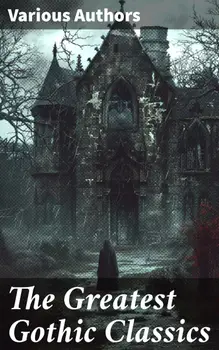The Greatest Gothic Classics is an extraordinary collection that spans the macabre and the mysterious, weaving an intricate tapestry of terror and the supernatural. This anthology delves into the varied landscapes of human emotion, transporting readers into the shadowy realms of Gothic horror. From the spine-chilling atmospheres conjured by the likes of cloistered abbeys and decaying castles to unearthly apparitions haunting the minds of protagonists, the anthology captures the quintessential elements of the Gothic tradition. Each selection serves as a testament to the genre'Äôs enduring power, whether through feverish accounts of the grotesque or the haunting elegance of Romantic expressions. The contributors, luminaries of the Gothic genre, each lend their distinct voices to this collection, as they hail from the Romantic, Victorian, and Edwardian eras. These writers, with their profound influences on literature, contribute to the anthology'Äôs narrative richness. Bound by common threads of imagination and innovation, figures like Mary Shelley, Edgar Allan Poe, and Emily Bront√´ explore themes of human fallibility, existential dread, and the sublime. Their diverse cultural and literary backgrounds illuminate the genre'Äôs ability to transcend time and geographic boundaries, thus enhancing readers'Äô engagement with the enigmatic and unsettling. Readers seeking an immersive dive into the world of Gothic literature will find The Greatest Gothic Classics an indispensable companion. It is a curated journey through a multitude of perspectives and styles, each echoing the timeless allure of the Gothic. This collection invites both seasoned and neophyte readers to ponder over humanity's deepest fears and desires. Whether appreciated for its aesthetic richness or its psychological insights, the anthology offers a rare opportunity to explore the literary movements that have shaped the Gothic tradition, fostering a dialogue that endures in contemporary literary discourse.
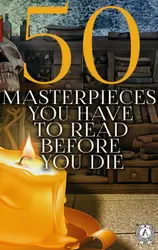
50 Masterpieces you have to read before you die : The Secret Garden, The Odyssey, A Christmas Carol, Oliver Twist, The Wonderful Wizard of Oz, The Scarlet Letter, Treasure Island, Robinson Crusoe, Gulliver's Travels, The Picture of Dorian Gray, Dracula and others
Frances Hodgson Burnett, Homer, Charles Dickens, Lyman Frank Baum, Nathaniel Hawthorne, Thomas Hardy, Robert Louis Stevenson, Henry Haggard, Wilkie Collins, H. G. Wells, Sir Walter Scott, Lucy Maud Montgomery, Louisa May Alcott, Henry Fielding, Mary Shelley, Arthur Conan Doyle, Leo Tolstoy, Euripides, Fyodor Dostoevsky, Alexander Pushkin, James Fenimore Cooper, Daniel Defoe, Joseph Conrad, Jonathan Swift, William Shakespeare, Oscar Wilde, John Bunyan, Charles Darwin, Alfred Tennyson, Bram Stoker, James Joyce, Dante Alighieri, Howard Pyle, Jane Austen, Emily Bronte, Giovanni Boccaccio, Rudyard Kipling
book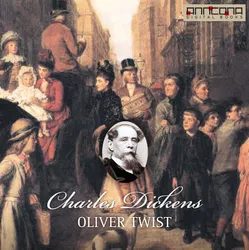
Oliver Twist
Charles Dickens
audiobookbook
Un Conte de deux villes
Charles Dickens
audiobook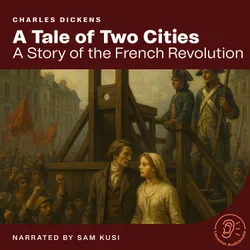
A Tale of Two Cities : A Story of the French Revolution
Charles Dickens
audiobookbook
A Tale of Two Cities (Book the Third: The Track of a Storm)
Charles Dickens
audiobook
A Tale of Two Cities (Book the Second: The Golden Thread)
Charles Dickens
audiobook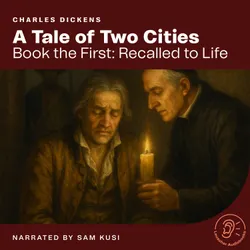
A Tale of Two Cities (Book the First: Recalled to Life)
Charles Dickens
audiobook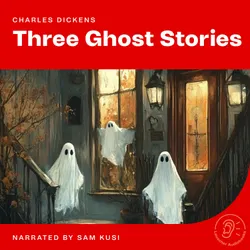
Three Ghost Stories
Charles Dickens
audiobookbook
Great Expectations : A Timeless Tale of Ambition, Class, and Redemption by Charles Dickens
Charles Dickens, Zenith Horizon Publishing
book
Oliver Twist : The Classic Tale of Orphans, Outlaws, and Redemption by Charles Dickens
Charles Dickens, Zenith Horizon Publishing
book
David Copperfield : Charles Dickens' Epic Tale of Triumph and Transformation
Charles Dickens, Zenith Horizon Publishing
book
A Christmas Carol : Charles Dickens' Heartwarming Holiday Classic
Charles Dickens, Zenith Horizon Publishing
book
